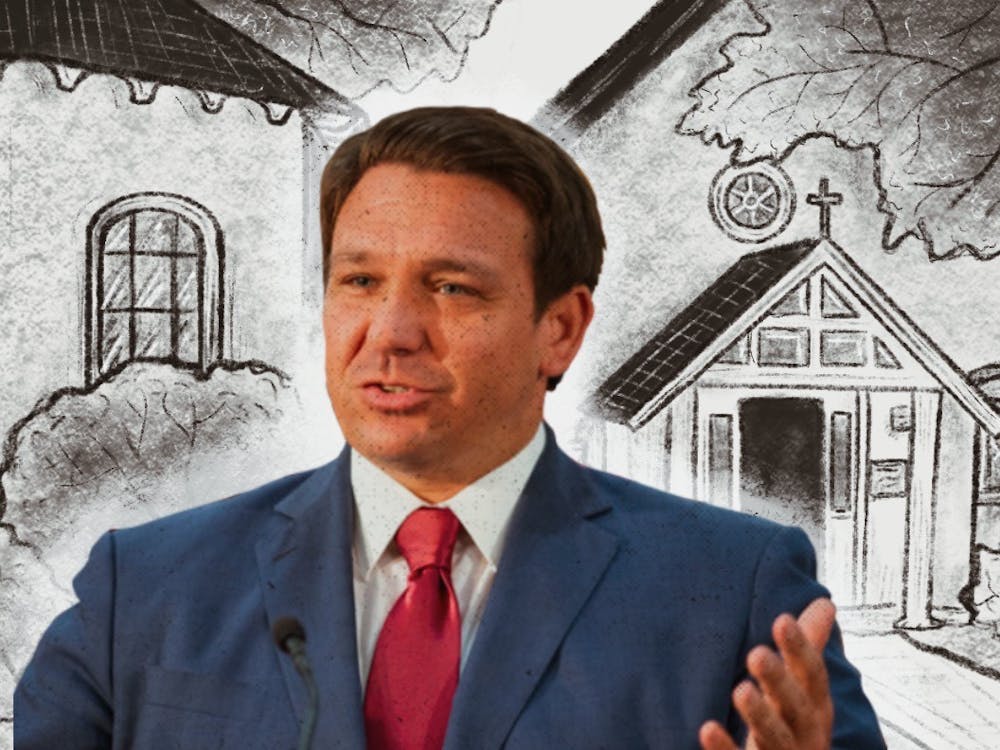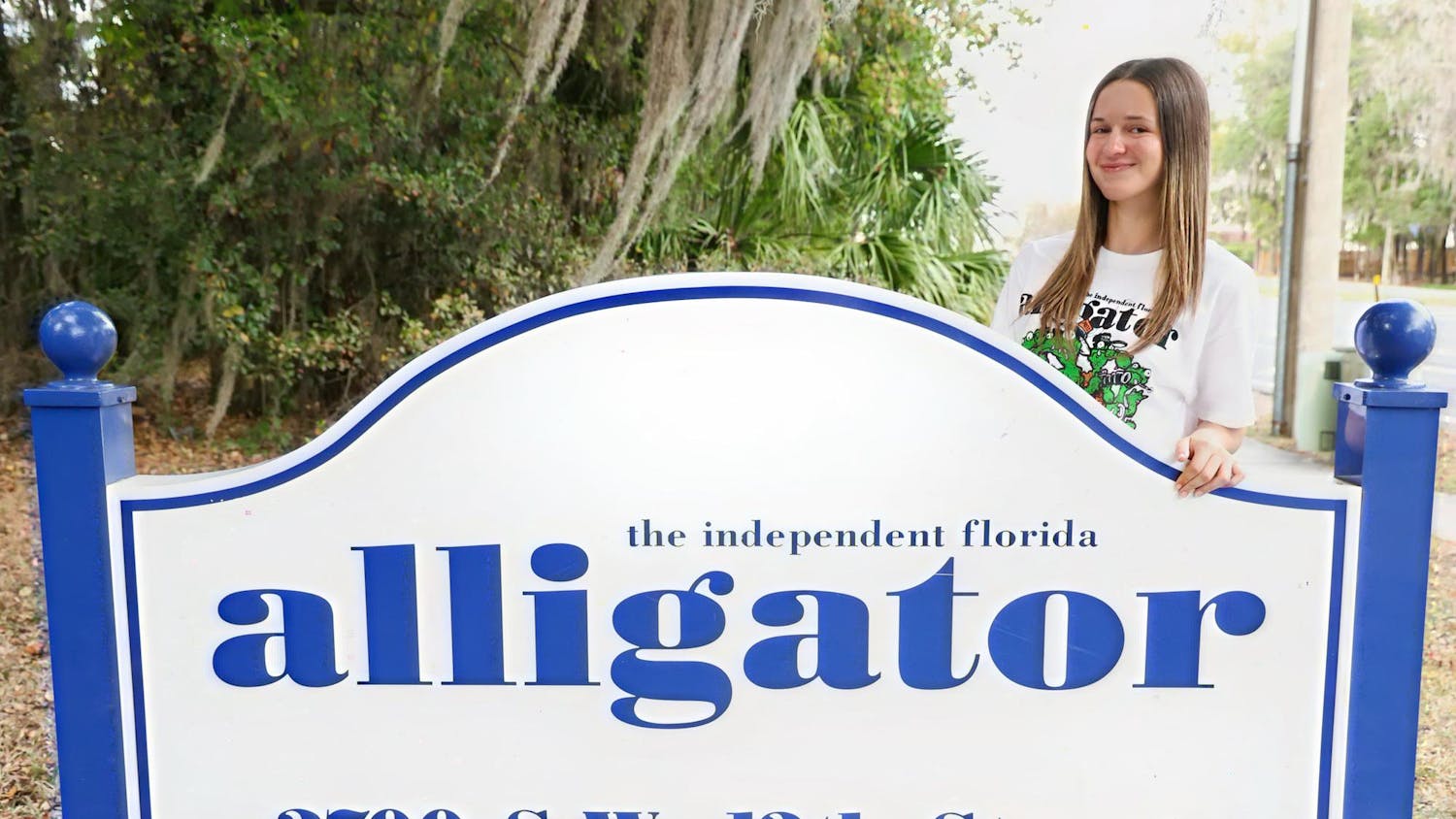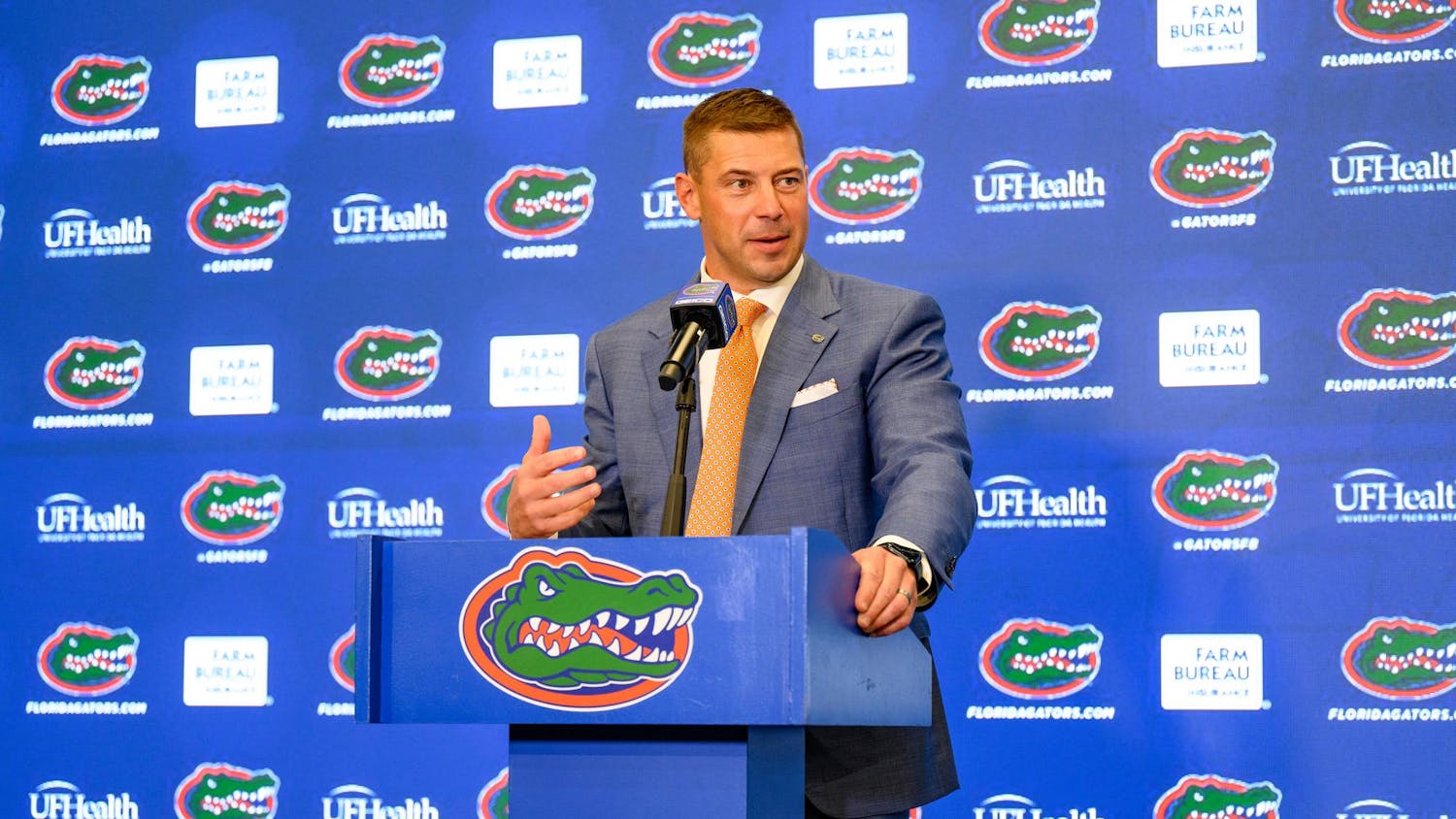After a lifetime of playing by every rule and avoiding law enforcement when possible, she finally received a naturalization certificate granting her American citizenship. But immigration anxiety still lingers for one UF employee.
A 27-year-old coordinator at the UF Center for Latin American Studies, who asked her name be withheld for concern over her prospective legal career, lived “in limbo” for years after migrating from Caracas, Venezuela, to New York before eventually settling in Miami, she said. She and her parents renewed their work visas and corresponding paperwork every year, waiting for the day they were granted green cards to signify permanent residence in the U.S.
The coordinator, who graduated from UF with a degree in criminology, received her green card — and eventually full naturalized citizenship — after more than a decade of contending with the system. But she said she still feels as vulnerable as she did in the early years of her residence when her status was up in the air.
“It’s terrifying,” she said. “There’s still this anxietal fear that keeps me up at night.”
Her citizenship status is safe, but she worries for others like her — such as almost 50 migrants who were bound for Florida but found themselves in a different state with little support.
Gov. Ron DeSantis facilitated the transportation of 48 migrants, most of whom were thought to be Venezuelan, to Martha’s Vineyard, Massachusetts — an island just south of Cape Cod and popular summer vacation spot — from San Antonio, Texas, Sept. 14. While supporters herald the move as a means of securing Florida’s border, national and local opponents condemn it as a political ploy meant to gain DeSantis points in the polls ahead of November’s general election and an irresponsible use of taxpayer money.
As lawsuits and investigations launch across the country, Gainesville residents and students like the coordinator are in disbelief over how the relocation transpired. She’s enraged and disappointed by the endeavor, she said, especially from a Floridian governor.
“If you’re representing the state of Florida, you know that a good chunk of individuals are immigrants,” she said. “It just feels like over and over and over again, we get let down.”
Several Venezuelan international students call UF home
UF enrolled 225 Venezuelan international students as of 2020, according to UF Institute of Planning and Research data. Most remain on an F-1 visa, which allows students enrolled in an academic institution to stay until they complete their degrees or diplomas.
Residency status depends on federal procedure, not university policy. Students seeking F-1 visas must complete the application and contact the closest U.S. consulate or embassy in their home country to schedule an interview.
Approval of the visa requires acceptance to a Student and Exchange Visitor Information System-approved school like UF, but the university doesn’t control student residency status. As to whether UF can safeguard existing residence for its international students, UF spokesperson Cynthia Roldan directed The Alligator to the Venezuelan Consulate or the U.S. Citizen and Immigration Services.
“The university cannot address this question,” she wrote.
The migrants relocated to Martha’s Vineyard are just a small portion of more than 6 million Venezuelan immigrants worldwide. Most of these immigrants fled the country because of lack of work, food and healthcare, according to United Nations data. This exodus represents the second-largest displacement crisis in history, according to UN data.
Governor balances praise, lawsuits and investigations
DeSantis’ move reflects his initiative to use sanctuary locations — cities, states and counties that obstruct Immigration and Customs Enforcement from exercising their ability to detain immigrants — to house migrants headed for Florida. It’s one of several policy measures DeSantis made to mitigate what he dubbed the “Biden Border Crisis.”
“What we’re continuing to do is use every tool at our disposal to insulate the state of Florida from the negative ramifications of [Biden’s] reckless border policy,” he said in an appearance at Embry-Riddle Aeronautical University Sept. 16.
Supporters of the governor, like the crowd at a Kansas campaign speech who gave him a standing ovation, have applauded the move. Conservative organizations like Young Americans for Freedom and Turning Point USA have also praised the relocation with social media posts.
The UF chapters of these organizations didn’t respond to The Alligator for formal comment.
The governor hasn’t only received praise though — he’s been subject to heavy national scrutiny.
DeSantis has defended his action, claiming the flight was voluntary and permitted through signed releases from every migrant. A recent lawsuit against Florida’s governor says otherwise.
Lawyers for Civil Rights, a civil rights law firm based in Boston, filed a lawsuit Sept. 20 on behalf of the migrants against DeSantis for allegedly misleading the migrants with fake pamphlets and an ambiguous destination.
Some passengers, who were originally set to stay in Florida before they were relocated, said they were led to Martha’s Vineyard with the promise of employment and housing. Others said they believed they were flying to Boston, according to the Associated Press.
Ariana Ramos-Mercado, a 19-year-old UF political science and international studies sophomore, found the migrants’ treatment concerning. She said news of the relocation deeply angered her — especially because a Florida politician spearheaded it.
“It’s just frustrating that our governor is getting involved in that stuff,” she said, “using actual human lives as political pawns.”
Ramos-Mercado was born in Puerto Rico, which grants her automatic U.S. citizenship. She feels lucky to have avoided the struggles of the immigration process, she said, and is disheartened by politicians’ failure to understand the challenges immigrants face.
“The lack of empathy and sympathy I see from lawmakers is astounding,” she said.
Florida state Sen. Jeff Pizzo, D-Miami, filed a lawsuit of his own Sept. 22. He sued DeSantis for alleged misuse of taxpayer money, which funded the flights.
Outside of the current lawsuit, DeSantis has also been the center of numerous investigations across the country.
California Gov. Gavin Newsom and Florida Commissioner of Agriculture Nikki Fried, who lost the Democratic gubernatorial primary to former Rep. Charlie Crist last month, also requested the U.S. Department of Justice launch an investigation into DeSantis and the transportation. The sheriff of Bexar County, Texas also opened an investigation into the relocation of the migrants.
DeSantis’ use of funds condemned by local, state officials
The use of funds has also been heavily criticized on the state and local level.
The money in question — $12 million — come from the American Rescue Plan, which was initially passed to distribute relief funds in the wake of the COVID-19 pandemic. DeSantis vowed to use “every penny” of that sum to facilitate more migrant transportations like the $615,000 flights to Martha’s Vineyard.
Gainesville Mayor Lauren Poe called for DeSantis to allocate some of those funds to local governments.
“Instead of sending families fleeing violence in Venezuela to Martha’s Vineyard, bring them to Gainesville, along with the $12m,” he wrote in a tweet.
Though not a sanctuary city, Poe said Gainesville has several nonprofits, like the Human Rights Coalition of Alachua County, that can provide immigrants with housing and resources.
Gainesville is dedicated to embracing every resident, he said.
“All of our neighbors, regardless of where they came from or how long they’ve been there, are welcomed,” he said.
Poe said the incident was “heartbreaking” and used people as political theater.
Crist, DeSantis’ November opponent, has been outspoken on the issue, condemning the relocation as “abusive” in a Gainesville campaign stop Sept. 24. He was shocked by DeSantis’ decision and use of state resources to pay for the flights, he said.
“Here he is using taxpayer money to pull his own political stunt,” he said. “It’s unconscionable.”
For residents like the coordinator, DeSantis’ plan represents a concerning regression into times of lower tolerance. The treatment of migrants today, she said, feels similar to eras of intense xenophobia and discrimination.
“Instead of progressing or moving forward, it almost feels like we’re going back in time,” she said. “History’s repeating itself.”
Contact Heather at hbushman@alligator.org. Follow her on Twitter @hmb_1013.

Heather Bushman is a fourth-year journalism and political science student and the enterprise elections reporter. She previously wrote and edited for the Avenue desk and reported for WUFT News. You can usually find her writing, listening to music or writing about listening to music. Ask her about synesthesia or her album tier list sometime.






